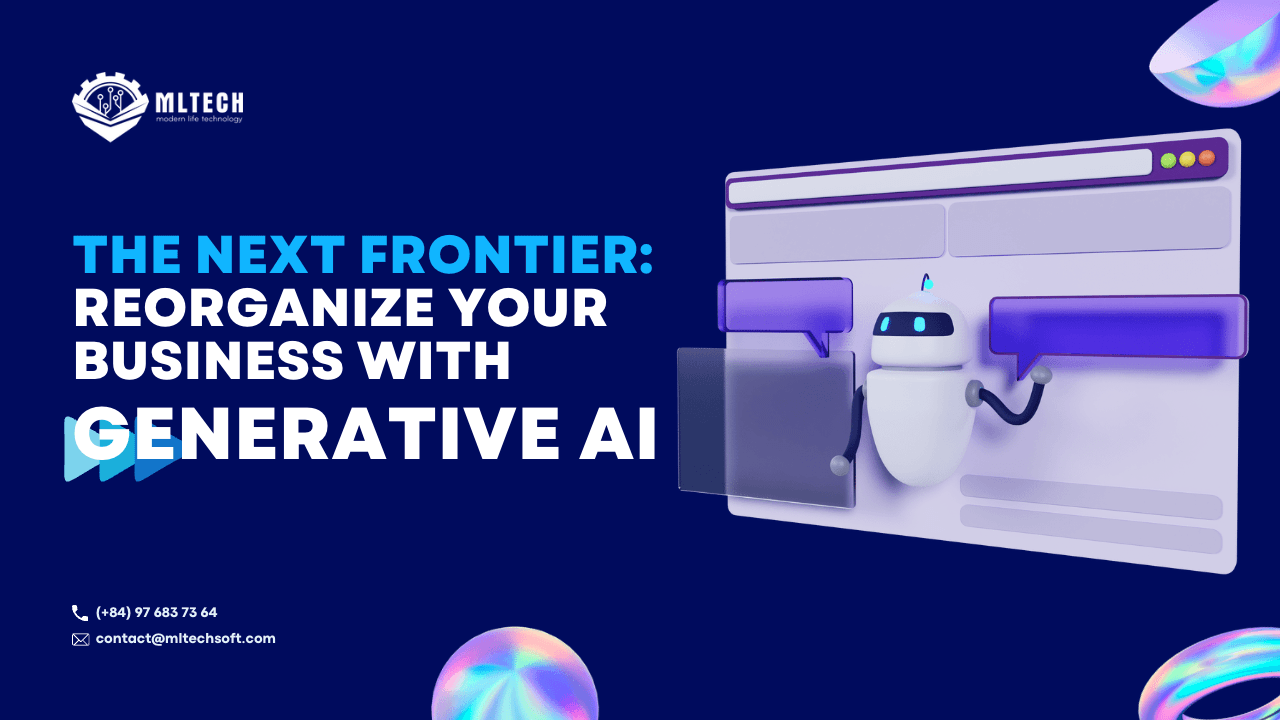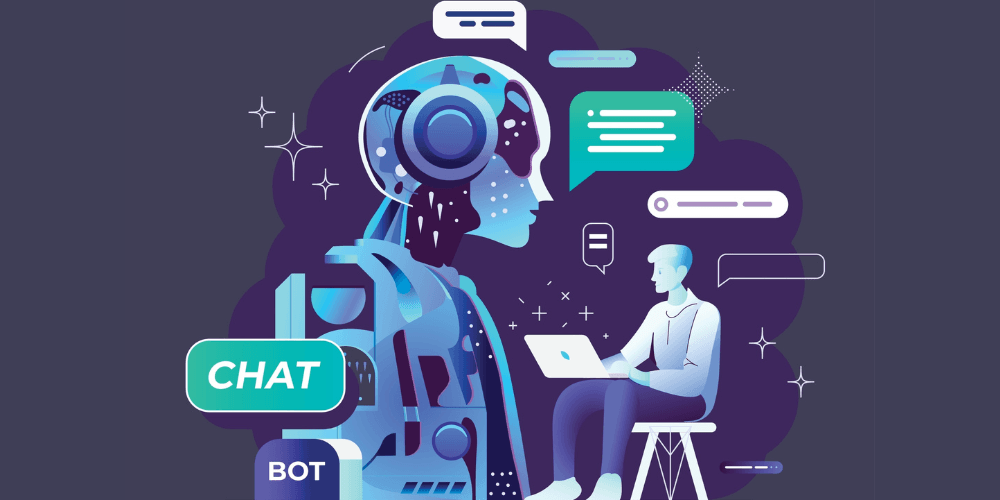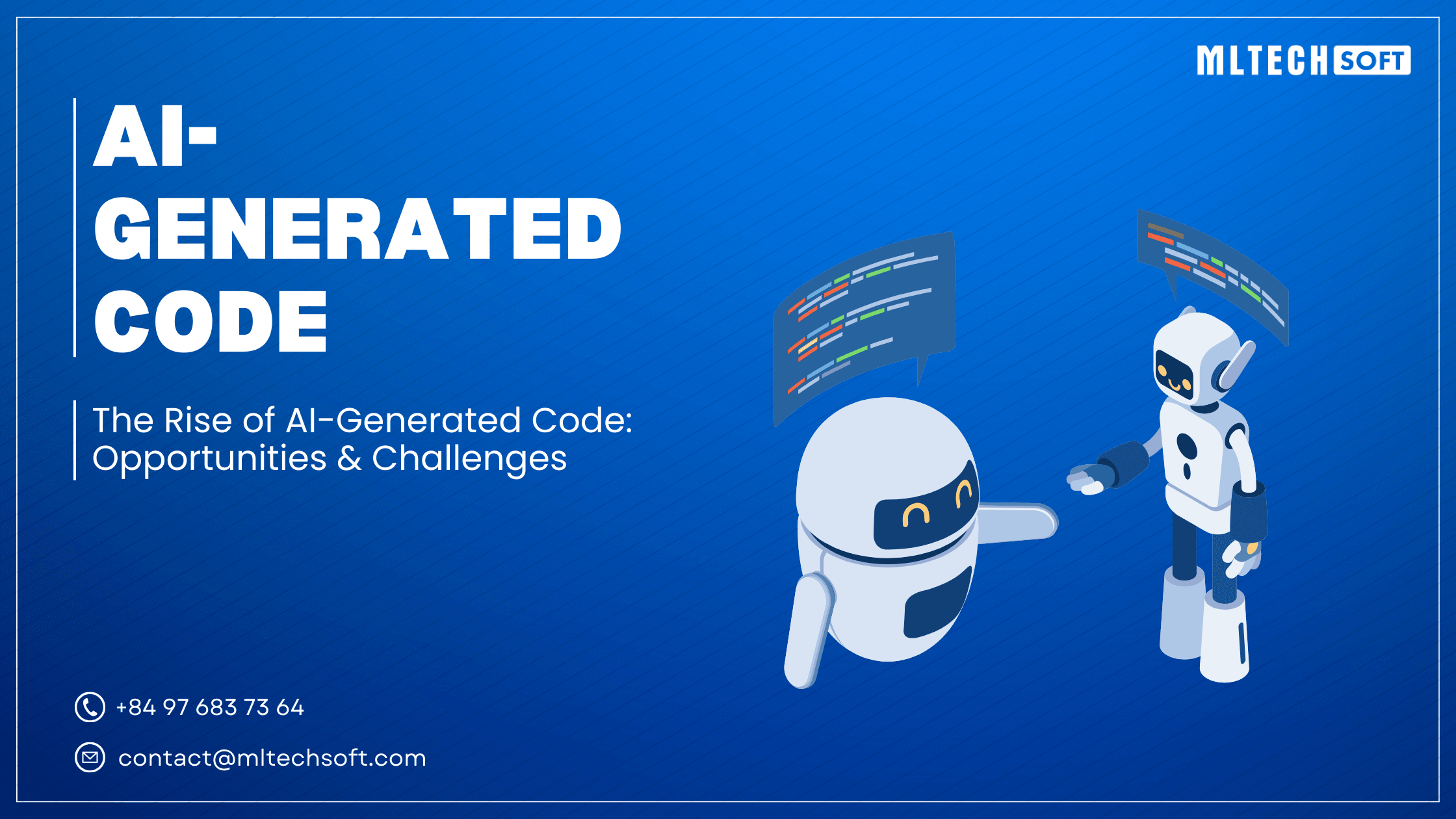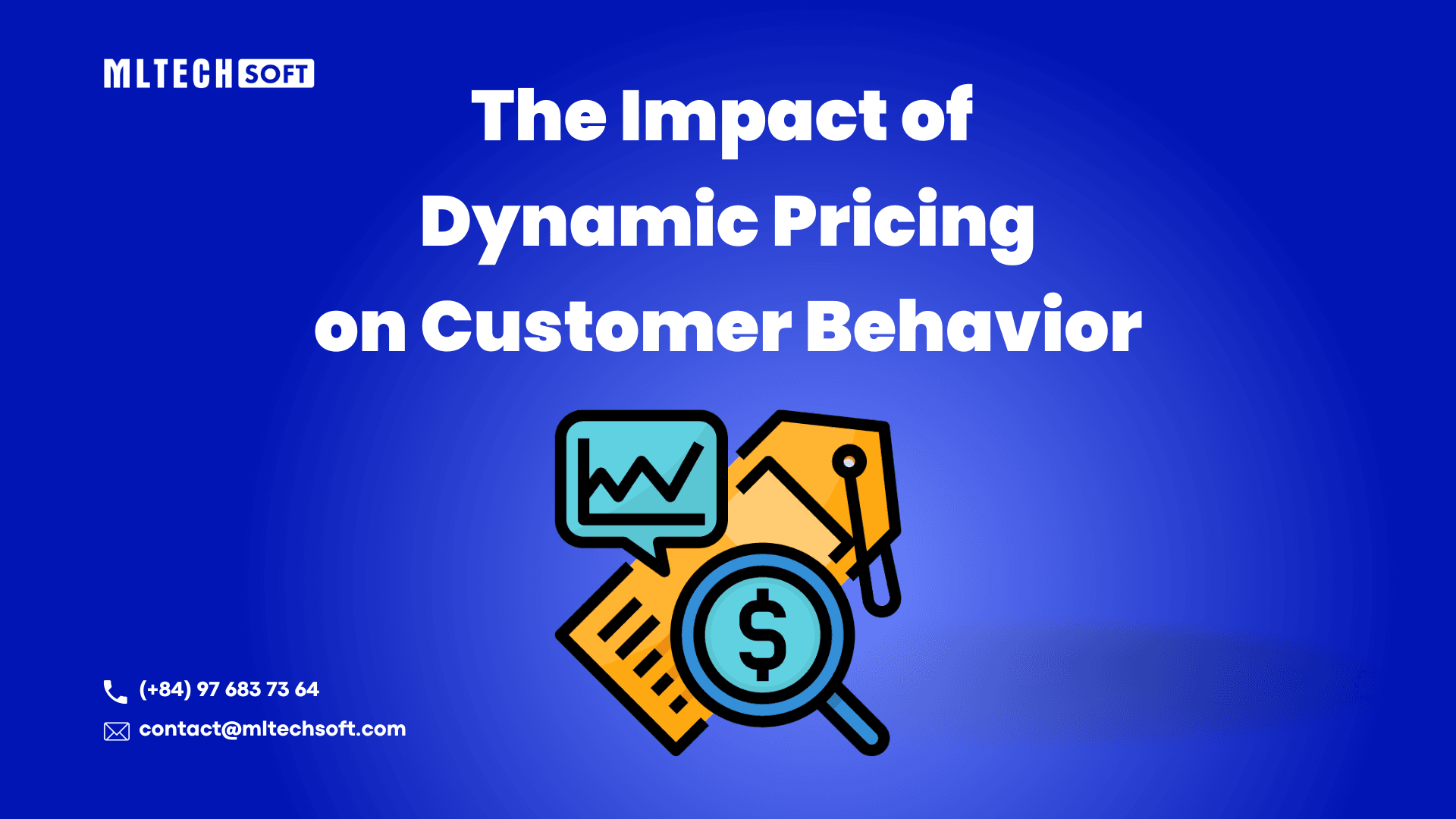Scroll down for more
The Next Frontier: Reorganize Your Business with Generative AI

Generative AI supports marketing by drafting ad copy, social media posts, press releases, and more. Other generative tools can even create video and music soundtracks, but the overall quality is questionable at this early stage.
The Current State of Generative AI
It's also important to understand that ChatGPT and other generative AI tools are based on the initial input query. More importantly, it's in the underlying data used to train machine learning models that you'll find the answers to these questions. Like many other applications of technology, it basically functions as a black box. Therefore, the quality of the output ultimately depends on the quality of the inputs, especially this important machine learning model.
The emergence of GPT models and their applications in various industries
Even with these limitations in mind, it's clear that generative AI offers a range of benefits, especially for early-stage startups. Expect the benefits to continue to grow as the technology matures and the underlying machine learning models consume more data.
Limitations and challenges of current generative AI models
The ability of this type of AI to ultimately produce high-quality video and other media also improves potential use cases. It goes without saying that every entrepreneur should keep an eye out for the latest news on generative AI and the most popular indices, such as ChatGPT and Google Bard.
It may be the special sauce your burgeoning business needs. Generative AI models do poorly when it comes to accessing basic information such as: B. Specify dates or perform basic mathematical calculations. Many algorithms are designed to process text or image data, which can limit the range and performance of these systems.

The Future of Generative AI for Enterprises
Generative AI can explore many possible designs for an object to find a good or best match. Not only does it expand and accelerate design in many areas, but it also has the potential to “invent” novel designs and objects that people might have overlooked.
Potential applications of generative AI in the enterprise context
Generative AI in marketing
Content is king, and one reason for that is how difficult it is to generate a steady stream of content. Writing marketing copy, summarizing long documents, and creating communications are great business applications for generative AI. Anyone who creates content can benefit from smart solutions like ChatGPT that complement their workflow.
Generative AI in product design
AI-generated product design refers to using artificial intelligence (AI) to create new product designs. This technology changes the designer's game by drastically reducing the time and effort required to create new concepts. Due to the limitations of current technology, this is most useful for quickly visualizing and testing new ideas early in the innovation process.
Generative AI in customer service
With AI, you can set up automated responses to customer queries. H. Answer as quickly as possible. Trickier issues are routed to the right support agent's inbox for faster resolution and support than ever before.
Create personalized content and experiences for customers
Artificial intelligence enables industry to design optimized parts to meet specific goals and constraints such as performance, materials, and manufacturing methods.
Manufacturing, automotive, aerospace, and defense industries can use generative AI to design optimized parts to meet specific goals and constraints such as performance, materials, and manufacturing methods. For example, automakers can use generative design to create lightweight designs that help them meet their goals of making their cars more fuel efficient.

How can the integration of generative AI lead to increased efficiency and cost savings for businesses?
Generative AI could boost U.S. labor productivity growth by nearly 1.5 percentage points annually over the next decade after it is widely adopted by businesses. Generative AI could ultimately increase global GDP by 7% annually.
The Challenges and Risks of Generative AI in the Enterprise
Generative artificial intelligence (“Generative AI”) is a type of artificial intelligence (“AI”) technology that can generate new content of various types, such as text, images, and audio. This means that you can not only spit existing relevant information out of your database but also generate new content. Generative AI starts with prompts. This can include verbal prompts, text sent as part of chat, or images. The AI algorithm then returns new content in response to the prompt.
Challenges and risks associated with the implementation of generative AI in the enterprise context
One of the major risks associated with AI is the potential for privacy and security breaches. AI systems rely on vast amounts of data to learn and make decisions, and this data often contains sensitive information about individuals and organizations.
If this data is not properly protected with robust security protocols, unauthorized persons can access and misuse the data, leading to data breaches. To mitigate this risk, organizations should implement robust data security and privacy protocols, including measures such as conversation encryption, access control implementations, and regular security audits.
Another risk associated with AI is the potential infringement of intellectual property rights. AI tools like generative AI models like ChatGPT are developed based on large datasets, including publicly available text data, social media posts, and websites, to generate new content. increase. Doing so may lead to unintended patent, trademark, or copyright infringement.
Organizations should conduct thorough IP clearance research before developing and launching AI-powered products and services. You should also consider consulting an IP expert to ensure that your product does not infringe on existing IP rights. Additionally, AI-based tools can make it difficult to determine who owns the rights to the content created.
Generative AI has the ability to write code, design new drugs, develop products, redesign business processes, and redesign the supply chain. Investors are excited about the potential of AI, as evidenced by the exponential growth in AI investment.
AI investment will grow 71% year-on-year from $1.5 billion to $2.6 billion in 2022 (BofA research article). Gartner research shows that AI-powered drug discovery and AI software coding have received the most funding. Many industries have already integrated AI as part of their business processes and operations, but the use and capabilities of generative AI are still in their early stages and not fully realized.

How can companies mitigate these risks and ensure that the implementation of generative AI aligns with their values and mission?
Build integrity into enterprise AI by design. “Just as people need to align themselves with the values of their organization, so should AI,” Atkinson and Mohamed write in VentureBeat "Organizations must set the right tone from the top down on how they develop, deploy, evaluate, and secure AI responsibly. This is consistent with core values and a culture of integrity.”
The Role of Human Expertise in Generative AI
AI is now much more limited than people might expect. It is often difficult for humans to teach AI what they cannot do on their own. A human will therefore always play a role in training and supporting his AI and automated systems. These AI-driven models rely on context and deep inputs that can only be realized or implemented through human understanding, not only in product development but also in social and cultural contexts.
How can human expertise complement and enhance the capabilities of generative AI in training data sets and setting ethical guidelines?
Today, the amount of data generated by both humans and machines far exceeds the ability of humans to ingest, interpret, and make complex decisions based on that data. Artificial intelligence forms the basis of all computer learning and is the future of all complex decision-making.
An artificial intelligence researcher who works for one of the world's most powerful technology companies says, "AI can improve our vision and hearing, remove language barriers, reduce the time it takes to find important information, and transform our everyday lives. We automate information."
The collaboration between humans and generative AI can lead to more innovative and effective solutions for businesses
This is a business extension of the interface between humans and machines. By freeing employees from mundane tasks that can be automated, they can redirect their energy and focus on more strategic and creative work that requires human intuition, decision-making, and problem-solving skills—at least not yet.
The Future of Generative AI in the Enterprise
Generative AI can develop hypotheses and concepts for medical research. By 2025, generative AI technology will be responsible for over 30% of the discoveries of new drugs and materials. The use of generative AI in drug discovery leads to significant cost savings.
Potential benefits and risks of generative AI in the enterprise context
Generative AI is already revolutionizing the art and design fields, giving artists and designers new tools and techniques to create unique and personalized content. With its ability to generate new images, designs, and even entire environments, generative AI opens up new possibilities for creative expression and innovation in art.

One area where generative AI is already making a big impact is in the field of digital art. With the advent of generative art, artists are looking for new ways to create interactive and immersive experiences that blur the lines between art and technology. Using techniques such as machine learning and computer vision, the artist can create generative artwork that reacts to the viewer and environment in real-time, creating a dynamic and ever-changing experience.
Potential for increased automation and the need for new skill sets in future work
More new jobs will be created, and the battle for these special talents will intensify due to shortages. Extensive educational programs and corporate training for those who know how to become generative AI and human coordinators. If you don't already have one, someone with experience using bots can be in great demand. These new jobs also lack standard job descriptions and talent pipelines.
Recommendations for companies looking to implement generative AI in their operations
The rise of generative AI has the potential to revolutionize business. This technology, which can learn from existing data and create original content, has the potential to revolutionize the industry and change the way companies work.
Generative AI has the potential to increase efficiency and productivity, reduce costs, and open up new growth opportunities by enabling the automation of many tasks previously performed by humans. Therefore, companies that can use technology effectively can gain a significant competitive advantage.
Conclusion
The ability of this type of AI to ultimately produce high-quality video and other media also improves potential use cases. Every entrepreneur should keep an eye out for the latest news on generative AI and the most popular indices, such as ChatGPT and Google Bard. It may be the special sauce your burgeoning business needs.
Get our blog
Want the latest and greatest from our blog straight to your inbox? Chunk us your details and get a sweet weekly email.
Read more in our blog

Project Management
The Rise of AI-Generated Code: Opportunities & ChallengesExplore how AI-generated code is transforming programming with tools like GitHub Copilot and AlphaCode. Learn about the opportunities it offers—faster development, accessibility—and the challenges like security and ethics we must address.

Project Management
The Impact of Dynamic Pricing on Customer BehaviorExplore the impact of dynamic pricing on customer behavior and learn how to implement effective pricing strategies.

Project Management
Focus in Scrum: Keeping Your Team on TrackDiscover effective strategies to maintain focus within your Scrum team, overcome common challenges, and boost productivity.
MLTECH SOFT